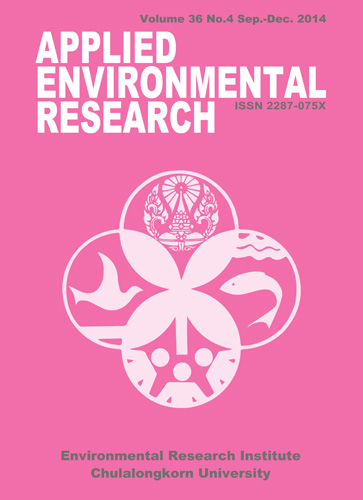Environmental Management Transfer and Environmental Performance by Japanese Firms in Thailand
Main Article Content
Abstract
This paper analyzes the determinants of environmental management transfer and environmental performance by Japanese firms in Thailand. For sustainable development, all actors need to contribute to the reduction of environmental loads. This requirement is part of a corporate social responsibility. Data obtained from a questionnaire survey on Japanese subsidiaries in Thailand are used in the analysis. Government regulation, environmental strategy, organization and environmental performance are the key factors in the analytical framework. This paper uses ordinary least square (OLS) method for estimation. The results of the analysis indicate that the environmental management system and green procurement by parent firms are significantly related to the international transfer of these practices. Top leadership and the goal of environmental management in the subsidiary are also significantly related to the transfer. The emphasis of environmental strategy leads to improved environmental performance. Specifically, water and air performance are related to top initiative. In contrast, CO2 and waste performance are related to the priority of environmental management. This paper presents new findings in environmental management.
Article Details

This work is licensed under a Creative Commons Attribution-NonCommercial 4.0 International License.
Published articles are under the copyright of the Applied Environmental Research effective when the article is accepted for publication thus granting Applied Environmental Research all rights for the work so that both parties may be protected from the consequences of unauthorized use. Partially or totally publication of an article elsewhere is possible only after the consent from the editors.

